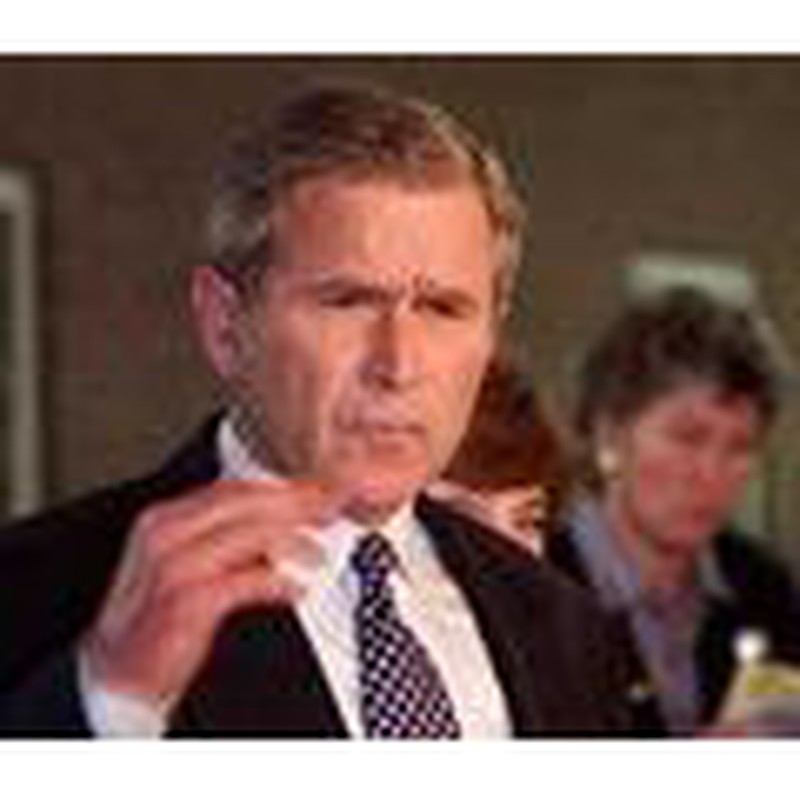You Gotta Have Faith
- David Brooks Senior Editor, The Weekly Standard
- Updated Apr 02, 2002

Yet over the past four months, Bush has demonstrated that he possesses excellent judgment, and some sort of mental faculty that college admissions committees not only don't reward, they don't even seem to be aware of.
Bush has made a series of shrewd decisions. He decided to frame the struggle as a war on terror, even though some, including Senator Tom Daschle, feared the use of the word "war" was too broad. He decided to go after the regimes that harbor terrorists, even though many thought getting involved in places like Afghanistan would lead to quagmire. He decided to hook up with the Northern Alliance, which many considered a ragtag bunch. He recognized by 9 P.M. on the evening of September 11 that this was an opportunity to reframe relations with Russia and China.
So how could a guy who appeared so lightweight be so smart? The conventional explanation is that the president has been able to do so well precisely because he is simple-minded. As Time magazine declared, "War has turned what many saw as Bush's liabilities--his distaste for detail, his cocky self-assurance, his sheer simplicity--into assets. Untroubled by doubt, uninterested in nuance, Bush has been relentlessly focused."
The explanation is implausible on its face. In most realms of human endeavor, it helps to intelligently grasp the complex forces at work, but somehow when confronted by a new type of warfare against a new sort of foe, it's a bonus to be simple-minded? Where is the logic in that?
Moreover, over the past few weeks we've learned a lot about Bush's decision-making in the days after September 11, mostly from a series by Dan Balz and Bob Woodward in the Washington Post. And the evidence refutes the "simple-mindedness is good" explanation.
At key moments, Bush chose the less simple option. For example, in the early days, there was an internal debate over whether to focus on al Qaeda, the direct authors of the provocation, or to go after the broad network of terror groups, as the CIA argued. Bush sided with the CIA. Some aides wanted to describe September 11 as an attack on "our way of life." But Bush thought that phrase too America-centric. So he added, and "all nations that love freedom."
Moreover, the striking feature of Bush's mind is its pacing. Bush is famous for stubbornly sticking to his ideas. If he endorses a tax plan in 1999, he's still going to push it, under very different circumstances in 2001. Yet when the evidence mounts that he should change his mental framework, he can do it quickly and sweepingly. Bush entered the White House a gimlet-eyed foreign policy realist, skeptical of nation-building. Now he is an ambitious idealist, vowing to spread democracy and human rights. He is neither intellectually erratic nor closed-minded.
So what does Bush have that has enabled him to judge so well? I have a feeling the answer is encapsulated in a phrase Bush uses himself: guided by faith. In the secular world of the media, and the hyper-secular world of the university, we have a poor understanding of how faith informs judgment. But this seems to be the key.
If anybody knows any really good books that explain how faith informs judgment, I hope they will e-mail me with the titles. In the meantime, it is possible to imagine how faith has influenced Bush's decision-making.
In the first place, Bush says he feels God has selected him for this moment and that things happen for a reason. This appears to have given him the serenity and confidence that are so evident to people who meet with him these days. Second, Bush is humble before God. Not engrossed with his own thoughts, he seems to be a good judge of others. He was able to read Russian leader Vladimir Putin better than most Russia experts. He seems deft at understanding other people's spiritual states. On September 11, Bush had been telling his staff that the country was at war. Communications Director Karen Hughes wanted to put that idea into a public statement. Bush stopped her, saying that at least during the first hours of trauma, "our mission is reassurance."
His faith also provides him with a developed moral sense. Bush has used the word "evil" repeatedly during this conflict, and many people have cited this as evidence of his simplistic view of the world. But where on earth does anybody get the idea that to call something evil is to make a simple statement? Evil is a complex concept, containing notions of sin, temptation, the possibility of redemption, and much else.
Bush also seems to feel that it is a sign of decadence to wrap one's true meaning in a fog of legalisms or diplomatic formulas. With its bold, morally charged statements, Bush's State of the Union address can be read as one long effort to offend the State Department sensibility, which is rationalistic and calculating. It's as if Bush has instead adopted the epistemological style of the gospels, which are straightforward, but not simple.
Since September 11, a lot of intelligent and learned people have said a lot of idiotic things. Meanwhile, George W. Bush, lacking both deep learning and wide experience, has made a series of smart decisions. Maybe it's time we reconsidered what it means to be intelligent.
David Brooks is a senior editor at The Weekly Standard.
This article originally appeared in the 3/1/02 issue of The Daily Standard, the online publication of The Weekly Standard magazine. For more information, please visit www.weeklystandard.com.




















